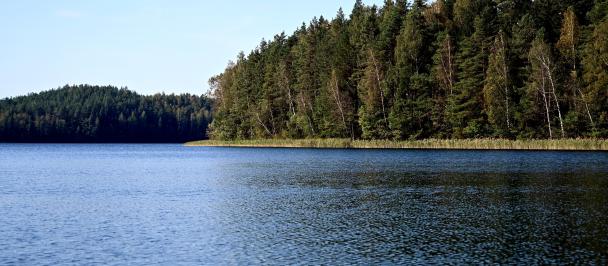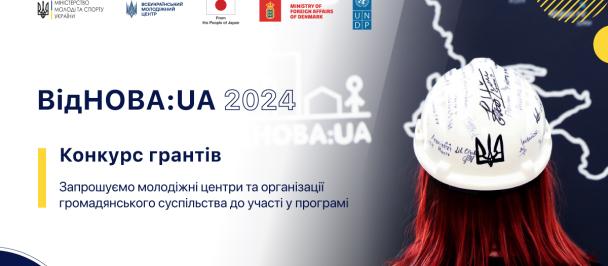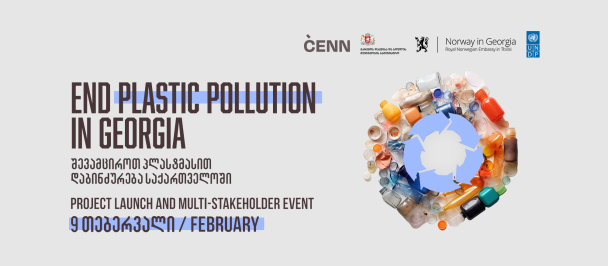Environmental volunteering is an essential aspect of community development and is key to promoting environmental knowledge and green skills among the youth.
Why Environmental Youth Volunteering Is at the Forefront of the Local Green and Inclusive Development?
August 11, 2023

Environmental volunteering plays a big role in engaging local communities in addressing local environmental and social issues.
As the world is failing to address complex development and environmental crises including the loss of biodiversity and climate change, the millions of children and young people worldwide are bearing the brunt. According to a recent report “Charting a youth vision for a just and sustainable future”, a child born in 2020 will experience on average twice as many wildfires, 2.6 times as many droughts, 2.8 times as many river floods, and 6.8 times more heatwaves in their lifetimes as a person born in 1960.
That is why the efforts to keep the planet habitable and green must take into account not only the development needs of youth; they must also include young people in the solutions.
Young people have creative mindset that can generate new ideas and innovations that can help find solutions to the environmental challenges.
In Belarus, the United Nations Development Programme (UNDP) together with the local and the national partners works to leverage volunteering and informal education to develop future skills, such as problem-solving, teamwork, communication, among youth. The Accelerator Lab maps best practices and trainings for the volunteers’ teams and devises educational materials for their coordinators and leaders.
Developing of environmental volunteering helps to support and empower young adults in implementing their potential to deal with existing and arising challenges.

In July, young volunteers from Minsk, Vitebsk, Grodno, Brest regions gathered in “Sinsha” Nature Reserve to participate in the environmental volunteering outdoor camp “Zapovednoe Poozerie”.
The camp was organized in “Sinsha” Nature Reserve located in Rossony district of Belarus. Around 80 % (10,301 ha) of the Reserve is covered by forest, which makes this nature area one of the largest forest territories in the country.

Environmental volunteering helps young people to generate unique green knowledge and skills to move towards the green future.
Together with the management and staff of the Reserve, 39 volunteers have come together to design solutions to protect the natural environment and improve the local ecotourism infrastructure.
The hackathon was an important part of the camps’ programme. The teams of youth volunteers and their mentors worked on a concept of a family friendly ecological route in the Reserve, which will be accessible for adults with babies and small children.
Making the protected natural areas accessible for people of all ages and physical abilities helps increase the flow of tourists. As a result, the generated profit creates additional opportunities to promote environmental knowledge and skills among vulnerable groups.
In addition to finding the best solutions for nature protection and tourism development, the camp promoted the importance of green learning, as well as knowledge sharing between volunteers of different ages and backgrounds.

"In the camp kids learn how to take care of nature and help people. I love that a lot. If you help children to develop green skills, they will take this knowledge further into adulthood."Arina, 23 years old, camp participant, environmental volunteer.
Engagement in environmental volunteering is a tool that may provide people with a new role, identity, skills, and social networks. It may be particularly effective for the individuals who would like to be outdoors and stay connected with nature, yet need specific encouragement and support, like people with disabilities.

The camp in “Sinsha” became a platform for the joint work of the Reserve’s administration, youth volunteers and local social organizations that work with people with disabilities.
Earlier, UNDP supported a series of trainings for volunteers to improve their skills on working people with disabilities in nature reserves. In the camp, the environmental volunteers joined the local Day-care Center for Young People with Disabilities to organize and run an inclusive green quest for people who require extra help with learning.

Environmental volunteers also become leaders and initiators of innovative solutions at the local level. Often operating as mentors in the green development, young people participate in the promotion and spread of environmental knowledge among other members of the local communities, motivating them to be greener and more enthusiastic in solving local environmental challenges.

 Locations
Locations


